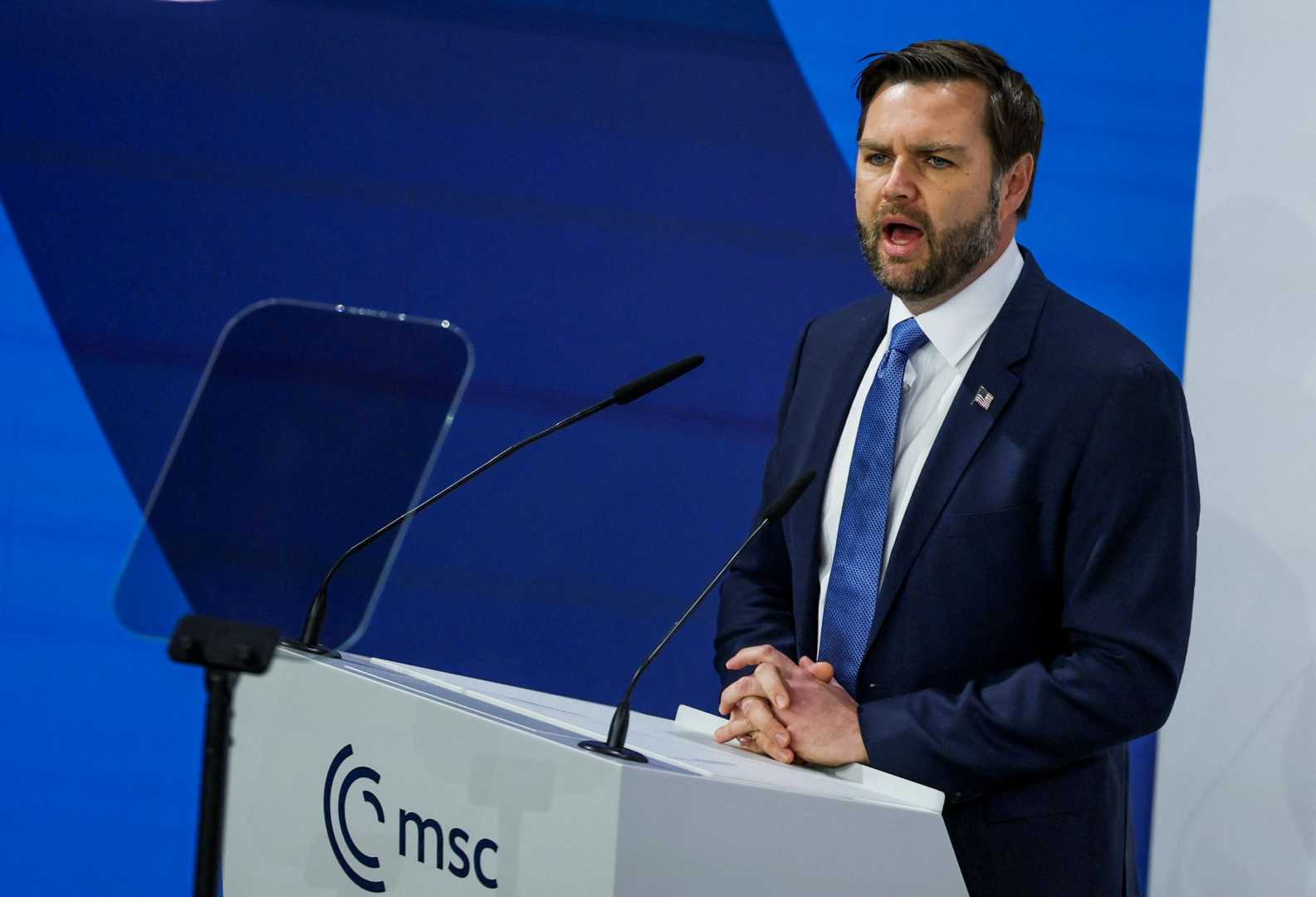Politics
J.D. Vance Meets AfD Leader After Controversial Munich Security Speech

MUNICH, Germany — U.S. Vice President J.D. Vance‘s contentious address at the Munich Security Conference has prompted an unexpected meeting with AfD leader Alice Weidel. According to Weidel’s spokesman, Daniel Tapp, the 30-minute conversation occurred in Vance’s hotel shortly after his speech.
The discussions reportedly revolved around the ongoing conflict in Ukraine and pressing matters within German domestic politics, including the contentious debate surrounding the AfD’s political isolation, or “firewall” discussions aimed at excluding far-right parties from formal political engagements.
The meeting comes on the heels of Vance’s keynote address, which drew sharp criticism from several German politicians. During his remarks, he accused EU governments of creating undemocratic conditions, highlighting what he sees as greater threats emanating from within Europe compared to external threats from nations like Russia or China.
Vance stated, “The most significant dangers do not come from Russia or China, but from European governments,” citing instances such as a canceled election in the EU, investigations concerning online comments in Germany, and a controversial case involving an abortion opponent in the UK.
He further warned against what he termed “brandmauer” or firewalls that attempt to isolate right-wing parties from mainstream politics. “There is no place for firewalls. Democracy is founded on the sacred principle that the voice of the people counts,” he declared. Weidel praised Vance’s comments, calling his speech “excellent” and echoing his sentiments on the firewall debate.
However, top officials within the German ruling parties responded with vehement criticism. Following Vance’s address, Defense Minister Boris Pistorius condemned what he perceived as an illiberal stance from the new U.S. administration, stating, “The illiberal policies of the new U.S. government should not be exported to Europe,” and emphasizing, “We need a firewall against extremism.”
Vance’s speech was also met with skepticism from other German officials, including Foreign Minister Annalena Baerbock and Chancellor Olaf Scholz, who expressed concern that his remarks could undermine collaborative efforts against dangerous far-right ideologies.
On the conference’s opening day, a significant number of world leaders attended, including Ukrainian President Volodymyr Zelenskyy and German Chancellor Olaf Scholz. The Munich Security Conference is a pivotal event attracting many state and government leaders to discuss pressing global security issues. With Vance also engaging with leaders such as President Frank-Walter Steinmeier, discussions over defense spending were notably a critical topic.
The meeting between Vance and Weidel raised eyebrows as the AfD was not officially invited to the conference due to its extremist affiliations, which reflects ongoing tensions within German politics regarding far-right representation.
As the situation unfolds, the implications of Vance’s remarks and his meeting with Weidel could influence transatlantic relations, especially in the context of shared democratic values and approaches to crises like the war in Ukraine.












